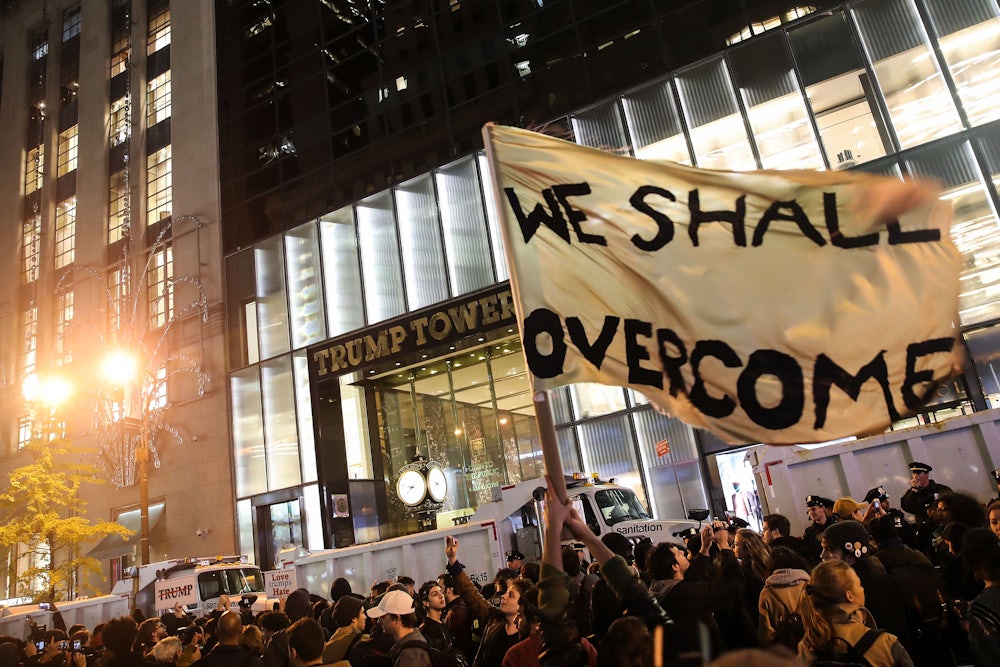If you’ve watched cable news over the past 30 hours or so, you’ve seen a lot of very earnest talk about how it’s time to give Donald Trump a chance. On CNN, in particular, Trump’s victory speech has been taken very seriously, particularly the parts about how he plans on being president for everyone and will welcome former detractors into the fold. The last point seemed to be aimed squarely at his many Republican detractors, but pundits have nevertheless done Trump a favor and opened his arms even further.
To describe this as generous is an understatement of colossal proportions. Trump’s entire campaign was based on setting up sweeping and robust us-vs.-them dichotomies, on promising retribution for his rivals and groups deemed “un-American,” and on breaking countless democratic and political norms. But nevertheless, many television pundits have gone from treating Trump as an aberration of historical proportions to a relatively conventional president. After a bitter election, they say, it’s time to come together as a country and to give President Trump’s policy proposals a chance. New York governor and angry ball of nepotism Andrew Cuomo has already capitulated, welcoming Trump with open arms.
But on Wednesday night, another option presented itself. Hundreds of thousands of people in New York, Los Angeles, Philadelphia, Dallas, Oakland, and other major cities took to the streets to protest Trump’s election. In New York, thousands gathered outside of Trump Tower in protest of Trump’s racist rhetoric and chanted, “Not our president.”
One of the few immediate lessons of the 2016 election was the deep division between Democratic Party elites and the party’s base—and that has extended to the response to Trump’s victory. Many on the left will not extend an olive branch to Trump in the way that elites are encouraging them to, and for good reason. But this is a challenge for a powerless Democratic Party, which will be torn between working with Trump to mitigate the damage of his policies and uniting in opposition—as Republicans did shortly after Obama’s election.
This is a tough needle to thread, but Bernie Sanders’s statement on Trump’s election does it well. “To the degree that Mr. Trump is serious about pursuing policies that improve the lives of working families in this country, I and other progressives are prepared to work with him,” Sanders wrote. “To the degree that he pursues racist, sexist, xenophobic and anti-environment policies, we will vigorously oppose him.” This, I think, is the short-term path forward for Democrats—the only question is if they will listen.
